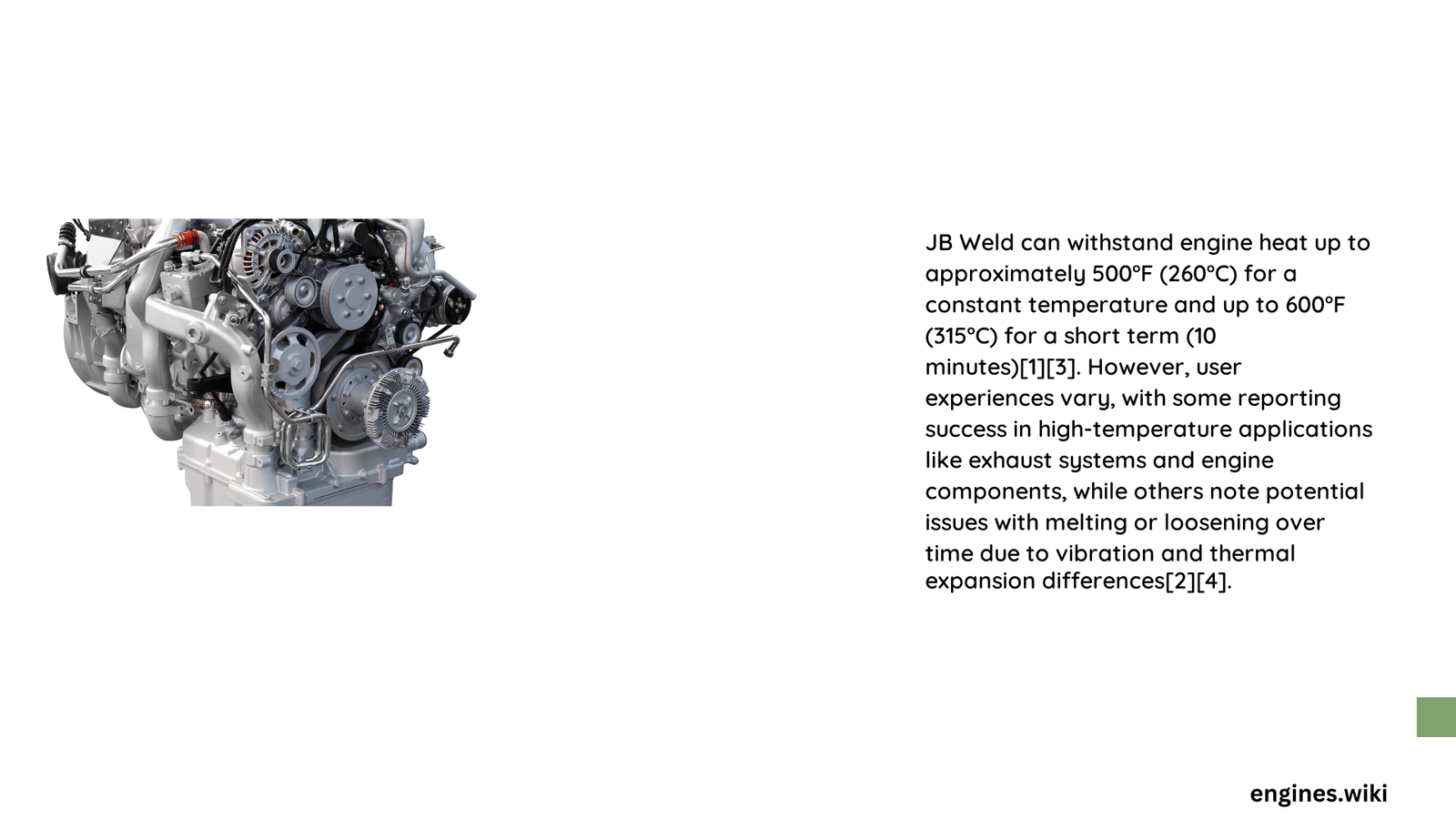JB Weld offers specialized high-heat epoxy solutions designed to withstand extreme temperatures in automotive and engine environments. With specific formulations like HighHeat™ capable of enduring continuous temperatures up to 450°F and intermittent exposures reaching 500°F, this versatile repair compound provides mechanics and DIY enthusiasts a reliable solution for challenging engine repair scenarios requiring robust thermal resistance and strong bonding capabilities.
What Makes JB Weld Suitable for Engine Heat?
Can JB Weld Survive Continuous High Temperatures?
JB Weld HighHeat™ Epoxy Putty demonstrates remarkable heat resistance with specific performance characteristics:
| Temperature Range | Performance Capability |
|---|---|
| Continuous Heat | Up to 450°F (232°C) |
| Intermittent Heat | Up to 500°F (260°C) |
| Short-Term Exposure | Maximum 600°F (316°C) |
How Does Surface Preparation Impact Heat Resistance?
Proper surface preparation significantly influences JB Weld’s performance in high-heat environments:
- Clean Surface Requirements
- Remove all grease, oil, and contaminants
- Use appropriate cleaning solvents
-
Ensure dry and roughened surface
-
Recommended Preparation Steps
- Sand or file surface for better adhesion
- Use degreasing agents
- Verify surface is completely dry
What Engine Components Can JB Weld Repair?
JB Weld effectively repairs multiple high-temperature engine components:
- Exhaust Manifolds
- Tail Pipes
- Mufflers
- Engine Block Cracks
- Cylinder Head Repairs
- Cooling System Components
What Performance Characteristics Define JB Weld’s Heat Resistance?
Critical performance metrics include:
- Tensile Strength: 4000 PSI
- Minimal Shrinkage: Ensures stable bonding
- Chemical Resistance: Withstands petroleum, water, acids
- Cure Time:
- Set Time: 1 hour at room temperature
- Full Cure: 8 hours
Are There Limitations to JB Weld’s Heat Performance?
While highly effective, JB Weld has specific constraints:
- Cannot exceed 500°F continuous temperature
- Requires meticulous surface preparation
- Performance depends on proper mixing
- Not suitable for constant extreme heat environments
How to Maximize JB Weld’s Heat Resistance?
Expert recommendations for optimal performance:
- Select appropriate JB Weld product for specific application
- Follow manufacturer’s mixing instructions precisely
- Ensure thorough surface cleaning
- Allow complete curing time
- Avoid exceeding recommended temperature limits
What Professional Mechanics Recommend
Experienced automotive professionals suggest:
- Use HighHeat™ for most engine repairs
- Test in small areas first
- Monitor repair performance
- Replace if significant degradation occurs
Conclusion

JB Weld provides a robust solution for engine heat-related repairs, offering impressive temperature resistance and strong bonding capabilities when applied correctly.
